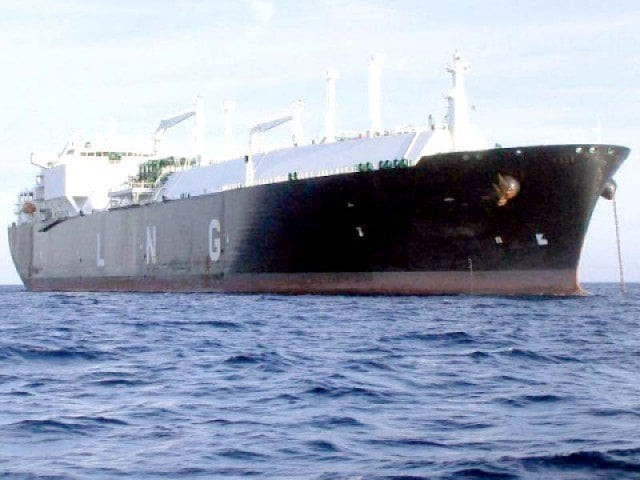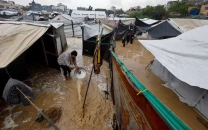CCE orders import of LNG to eliminate $40m loss
Directs Petroleum Division to utilise full capacity of second LNG terminal

This may further reduce the RLNG availability to only 400 mmcfd. PHOTO: FILE
The second LNG terminal has been running on the half capacity for past several months, resulting in burdening consumers with an additional cost of $45 million in 2018 due to mismanagement of gas companies to utilise the full capacity. The Pakistan LNG terminal Limited (PLTL) is estimated to put $40 million additional burden on consumers in 2019 if the second LNG terminal is not fully operated.
At present, two LNG terminals are operating at full capacity of 1.2 billion cubic feet per day (bcfd). However, the total capacity of the LNG terminals is around 1.4 bcfd.
In a bid to import 200 mmcfd additional gas, the CCE on Wednesday directed the Petroleum Division to go ahead with development of the LNG infrastructure required to transport additional LNG from Port Qasim to Pak Land.
The Sui Southern Gas Pipeline Limited (SSGCL) has pipeline capacity to carry 1.2 bcfd and the gas utility has been instructed to lay another 17-kilometer-long pipeline to carry an additional 200 mmcfd gas.
The Pakistan LNG Limited (PLL) has dedicated terminal capacity of 600 mmcfd but it had been running on half capacity. The PLL has one short term and one long term contract with Gunvor and ENI respectively to import 200 mmcfd gas for a second LNG terminal. The remaining imports are arranged through spot basis agreements.
Officials said during the CCE meeting chaired by Finance Minister Asad Umar, the Petroleum Division was directed to import more LNG to utilise the full capacity of the second LNG terminal.
Officials said the government would have to sign long term LNG agreements with the LNG producing countries to arrange load base of the LNG as the arrangement of spot purchase is not sustainable.
Officials said it was informed during the meeting that country requires 1.2 bcfd imported gas to meet the demand of different sectors. They said the power sector had gas demand of over 800 mmcfd.
However, there have been problems in supplying gas to different sectors as the independent power producers are not ready to sign agreements on a take-and-pay basis. Officials said the PLL, the SNGPL, and the SSGC were to sign back to back agreements relating to gas supply but these agreements had not been signed as power sector wanted to import gas according to its requirement.
In December last year, oil refineries had been on verge of shut down due to piling stocks of furnace oil which forced the government to impose a ban on furnace oil imports and use of this dirty fuel in power plants in violation of merit order.
The government had then allowed refineries to export surplus furnace oil. During a meeting, the CCE directed authorities to make necessary arrangement at Port Qasim for export of furnace oil after August. The Petroleum Division was also allowed to build furnace oil stocks for upcoming months in the summer season to meet requirements of power plants.
The Power Division secretary gave a detailed presentation to the meeting on the overall power supply and demand situation in the country. He highlighted the drive undertaken by the Power Division for recoveries. He also apprised the meeting about the projected supply/demand of electricity for the future and the fuel requirements for ample generation.
The chair while appreciating the efforts to cut down on transmission and distribution (T&D) losses emphasised steps to employ an effective strategy to ensure maximum recoveries.
In a tweet, Asad Umar said the T&D losses from October to December 2018 reduced to 12.8% compared to 14.1% in the corresponding period last year resulting in saving of around Rs5 billion during last three months. He said as many as 18,795 FIRs were lodged and 1,351 people had been arrested for involved in power theft. “It is an excellent start of a campaign to eliminate electricity theft.”
Officials said the external auditor and inquiry committee of the Petroleum Division were working to find out factors behind inflated gas bills. They said the report would hopefully be completed in a few days and would be submitted to the CCE which will take it up in its next meeting.



















COMMENTS
Comments are moderated and generally will be posted if they are on-topic and not abusive.
For more information, please see our Comments FAQ